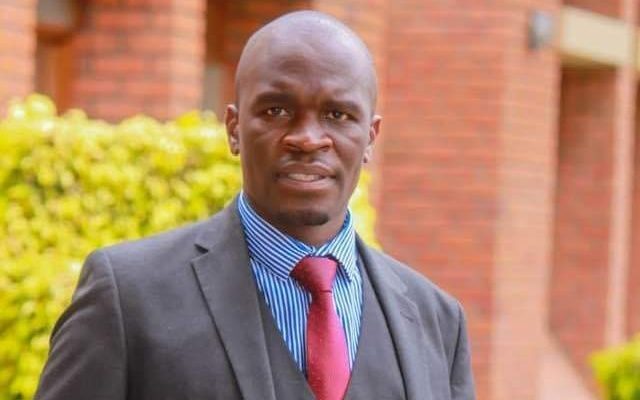
Nyirenda
The High Court has thrown out an application by the Malawi Government for a stay of the court order which ended the suspension of Anti-Corruption (ACB) director general Martha Chizuma and allowed her to return to work.
High Court Judge Mike Tembo, in a ruling today has said the government’s application lacks merit.
Last week, Malawi Government through Secretary to the President and Cabinet Colleen Zamba suspended Chizuma due to criminal charges which she is facing over her leaked audio.
The Malawi Law Society this week went to the High Court where it was granted permission to apply for judicial review of Zamba’s decision to suspend Chizuma and prosecutor Levison Mangani’s decision top bring criminal charges against Chizuma. MLS also obtained an injunction against Zamba and Mangani as well as the Lilongwe Chief Resident Magistrate restraining them from further implementing their decisions.
However, the Malawi Government through Attorney General Thabo Chakaka Nyirenda hired three lawyers to challenge the court order. The lawyers yesterday made an application to set aside the permission that the court granted.
The state lawyers argued in their application that the Malawi Law Society, lacks locus standi or sufficient interest in the matter at hand as there were no demonstrable rights that had been violated in the manner the State commenced the criminal proceedings in Criminal case number 236 of 2023 between The Republic v Martha Chizuma.
They added that the Malawi Law Society misread its objectives as provided for under section 26 (1) [to read-section 64] of the Legal Education and Legal Practitioners Act by instituting the action, saying the conduct is tantamount to interfering with lawfully and properly instituted criminal proceedings under section 83 of the Criminal Procedure and Evidence Code.
They further argued that the application by the MLS is not in the interest of the public as it is tantamount to clogging the criminal justice machinery (which is a public good) when there are readily available alternative remedies to the aggrieved or accused person.
They further argued that the order for permission to apply for judicial review was wrongly granted since Chizuma could have availed herself and exhausted the available alternative remedies under section 25 of the Courts Act and section 352 of Criminal Procedure and Evidence Code in relation to the criminal charges she is facing.
They also argued that Malawi Law Society, is acting like a proper surrogate litigant when Chizuma is competent to challenge the defendants’ conduct and has not challenged nor complained in this matter.
“The issue of interdiction of Ms. Chizuma is a private issue between Ms. Chizuma and her employer, and the proper procedure for remedies is not the institution of judicial review proceedings in the High Court but a proper application in the Industrial Relations Court which has exclusive jurisdiction over employment and labour related matters,” the government lawyers said.
In his ruling on the issue of locus standi, Justice Tembo noted that The Malawi Law Society seeks to protect on a matter of law of public significance or importance to do with the operations of the Anti-Corruption Bureau as established under the Corrupt Practices Act.
He added that the argument is that under the Corrupt Practices Act, only the President of the Republic has power to suspend the Director of the Anti-Corruption Bureau and that this is not what happened in this case.
On the contrary, it is the 3rd defendant, Zamba, who sought to effect such a suspension and this impairs the scheme set up by Parliament to regulate the suspension of the Director General of the Anti-Corruption Bureau. Further, that there is the issue of immunity from action.
“In such circumstances, this Court is not persuaded by the defendants’ contention that the claimant lacks sufficient interest or locus standi in this matter.
“The claimant (MLS) appears to be within its statutory remit of protecting on matters of public interest pertaining to the law, in this case, to do with the working environment of the Anti-Corruption Bureau in its fight against corruption under the Corrupt Practices Act. The claimant adds that the Director General of the Anti-Corruption Bureau is immune from action or other proceedings for official acts done in good faith,” said Tembo.
On the argument that Chizuma has other available remedies, Tembo said the MLS is exercising an important statutory mandate which should not be conflated with the remedies available to Chizuma personally.
He added that the logic behind the exercise of this statutory function lies in the fact that the issues at hand in these proceedings are beyond the personal interests of Chizuma.
“As such, this warrants a statutory body with the requisite mandate, namely, the Malawi Law Society to intervene where it feels that a matter of great importance to the nation, to use the words of the defendants, is concerned. The defendants cannot insist that these issues are confined to the personal remit of Ms. Martha Chizuma. The case of the claimant is that the issues in these proceedings are about the legality of how to deal with a Director General of the Anti-Corruption Bureau, who could be anyone other than Ms. Martha Chizuma in the long run,” said Tembo.
On claims that the issue of interdiction is a private matter between Chizuma and her employer, Tembo said the issues are not strictly private contractual issues since they are regulated by the Corrupt Practices Act and that brings them squarely within public law, that is outside the private law.
After dismissing several grounds by the state, Tembo threw out the application by the Government.
He said: “In the final analysis, this Court finds that the present application by the defendants lacks merit and it is declined accordingly.”
Meanwhile, Government has instructed its lawyers Chancy Gondwe, George Kadzipatike and Kalekeni Kaphale to appeal against the ruling.
Follow us on Twitter:














